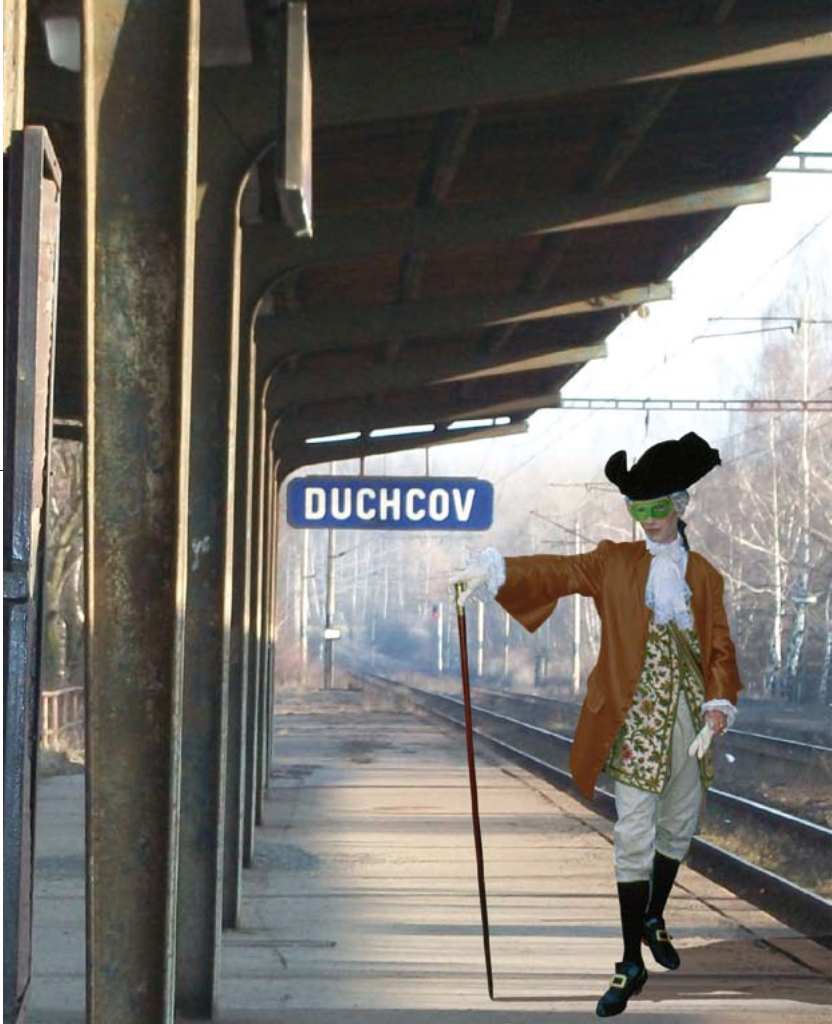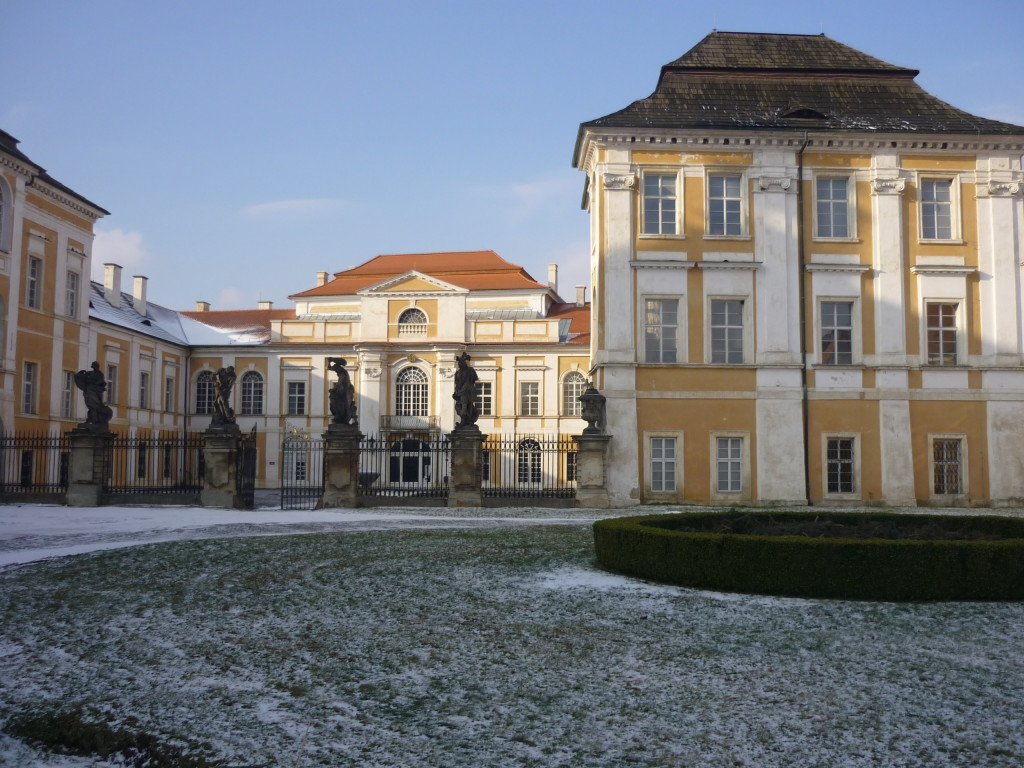A trip in the absence

We are unaware of Giacomo Casanova’s expectations, when in September 1785, he accepted the job of librarian offered to him by count Joseph-Charles Emmanuel at Waldstein, at the Duchcov castle in Bohemia. Surely, the mood of the great Venetian, who proclaimed himself knight of Seingalt for “the right that every man has of using the letters of the alphabet”, can’t have been the happiest if, while waiting to define his own future after his final expulsion from Venice, he writes to Lorenzo Morosini, his protector, to say: “I am fifty-eight, winter is approaching and just the idea of becoming an adventurer once more, makes me laugh – as I look at myself in the mirror”. Having been precluded from going back to his homeland and sent away from Paris in 1767 with a lettre de cachet bearing the royal seal and, expelled from Austria and Poland, which tragically ended his experience as secretary to the ambassador Sebastiano Foscarini, Casanova was left only with the choice of leading a stable life. And this prospective scared him, as did the Bohemian landscape which, with all its forests and “great mountains”, seems to enclose the horizon into a sort of claustrophobic dimension. “The beauty of the landscape does not affect him”, writes Sebastiano Vassalli. “The only aspect that has ever evoked his interest is the human landscape; and the Dux “human” landscape cannot offer many attractions”. Over all for a man who turned himself into an official ecclesiastic lawyer historian philologist journalist philosopher alchemist secret agent fake actor and spy, who had the possibility to actively take part in the social life and intrigues of European courts. At Duchcov, after a series of long tragicomic ordeals, we find that Casanova has finally reconciled himself with humankind and is now wearing his final mask: that of a man of letters.

After more than two centuries since his death, at Duchcov, it is difficult to find, outside the castle perimeter, any traces or suggestions leading to his past life. The village is ghost-like and it is not easy to imagine those animated streets of the village where this “Italian” – with dark eyes and a dark skin “like an African”, often used to walk along, gesticulating and making advances to adolescents, so much so as to deserve the appellation of “čertík” (the devil). Despite the pleasant sunshine, the streets are deserted; just a few anonymous figures rushing along the radiating alleys. Few women may be seen and none of them with that regal and captivating Bohemian charm. The village seems abandoned, as if an imminent catastrophe had caused the inhabitants to flee, abandoning their belongings. Closed and dusty shops display their out of production goods, whilst signs and faded advertisements testify to decades of neglect. Piles of rubbish can be seen among the shutters and smashed windows of a few empty buildings, which now look like street furniture. The Duchcov castle looks out onto the central square but regrettably, we discover that it is closed to the public, due to restoration work and preparatory work for an exhibition and, will open at the end of April. However, the castle attendant Marian Hochel, very kindly allows us to visit place. “But, there is very little left of Casanova”, he warns us. “The library and personal objects were transferred to Mnichovo Hradiště in 1945, while the entire legacy manuscript is somewhere between Prague and Paris”. We follow the guide into the large hall, from which there is a suggestive view of the large gardens; then up a flight of stairs, we come to the wing of the castle with the recreational spaces and guests rooms. Just a few meters away from Feltkircher’s door, the hated Waldstein butler, is Giacomo Casanova’s room. A large bright studio and bedroom, where among various trinkets, we discover a few authentic rare things, such as the first edition of Histoire de ma fuite de prisons de Venise qu’on appelle les Plombs, published in Leipzig in 1788. The most significant object is the armchair where on 4th June 1798, Casanova died after pronouncing the famous phrase: “I have lived as a philosopher, and I die as a Christian!”. The last theatrical performance of a man that thirty years before, on the eve of the crazy duel with the Polish Crown hunt master, count Branicki, renounces his religious service, eats a substantial meal and turns to God with these words: “Lord, if my enemy kills me, I am dammed; save me therefore from death”.
At the end of our tour, we thank the castle attendant who seems a little bit sorry: “Despite the crisis, a lot of visitors come here, over ten thousand a year. Most of them are Russian and German, but there are also numerous Polish, Slovaks and French people. The Italian tourist groups are very few and the individual visitors consist of very few units. In the last years, the Italian institutions” – Marian Hochel maintains “have lost complete interest in Casanova at Duchcov; the only contacts with Italy are represented by informal visits on the part of a few diplomats. That is a real pity because an international character such as Giacomo Casanova really seems to have been forgotten by his own homeland compatriots”.
Before leaving, we would like to pay a visit to the tomb of the famous adventurer for a last farewell, but it is pointless. With great surprise, we discover that the old cemetery, where he had been buried, was destroyed in the 1930s without his remains being taken elsewhere. The chapel of Saint Barbora, close to the new cemetery, although it is supposed to be Casanova Mausoleum, does not contain his remains. But even this absence, perhaps, might be part of a performance put on stage by Giacomo Casanova himself
By Alessio Di Giulio




